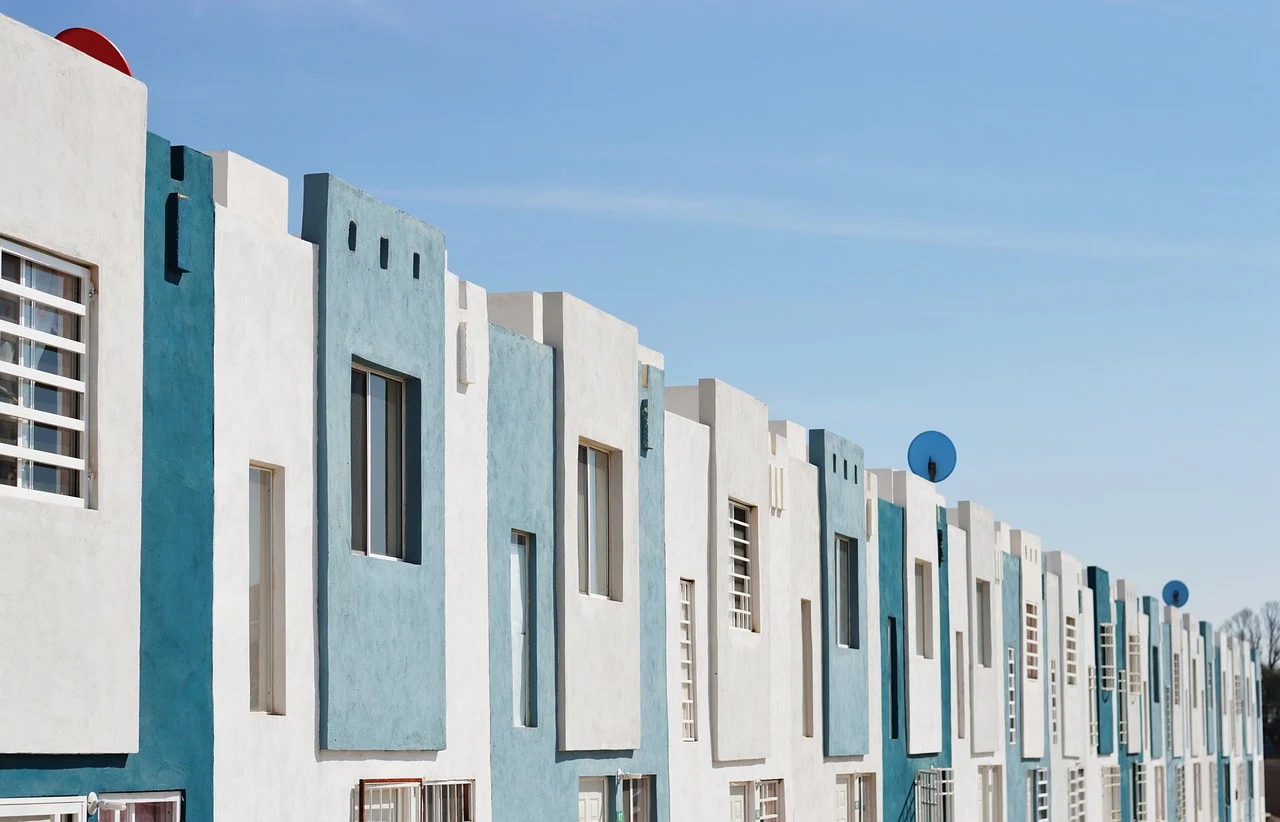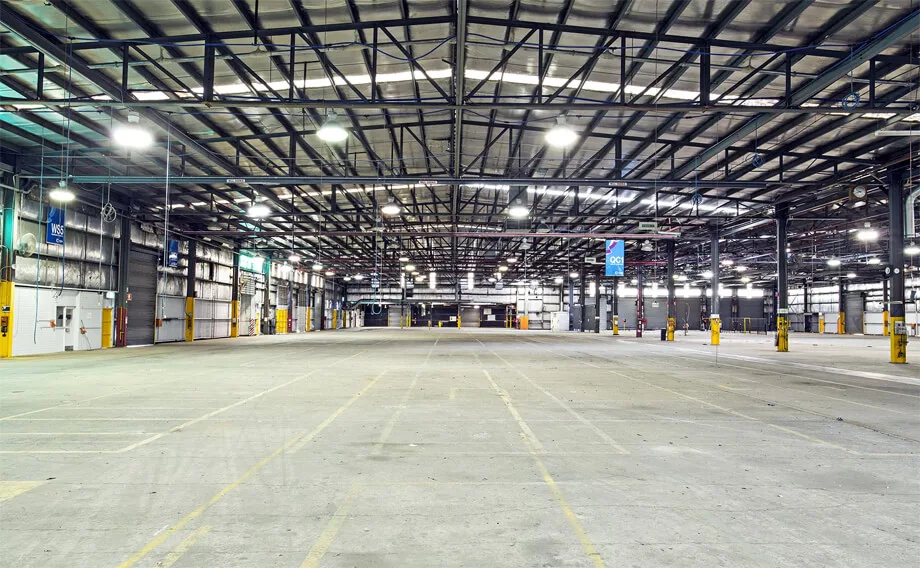Modular Homes Explained: Building Practices and Possibilities
What is the Modular Construction in General?
"Have you ever heard of modular construction?"
You're in luck because you just came across what you were searching about: It's a hot trend in the building industry right now, and for good reason! It's a method of construction where buildings are constructed off-site in sections or modules, then transported to the final location and assembled. It's like building with giant Lego blocks!
In the ever-evolving landscape of construction, innovation takes center stage, and one such innovation gaining significant traction is modular construction. Revolutionizing the way structures are built, this method offers a spectrum of benefits alongside its share of challenges. Since the construction industry includes as many types as we know, housing is the one that interests most people.
So firstly, let's dive into understanding modular homes.
 |
| A series of assorted types of modular houses stack together, Image by Miguel Á. Padriñán from Pixabay |
What are the Modular Homes?
In the realm of contemporary housing solutions, modular homes have emerged as a fascinating and innovative option. Offering flexibility, efficiency, and cost-effectiveness, these dwellings have gained traction among homeowners seeking a tailored living experience.
So, what exactly are modular homes?
Modular homes, often interchangeably referred to as prefab or factory-built homes, are residences constructed off-site in segments or modules. These modules are then transported to the final location for assembly. Contrary to traditional on-site construction, modular homes are built in climate-controlled factories, ensuring precision and quality control. The modules, typically constructed with wood, steel, or concrete, are designed to fit together seamlessly to create the desired structure.
This innovative approach has gained popularity recently due to its many advantages, such as cost savings, time efficiency, and sustainability. If you're curious to learn more about the different kinds of modular construction and why it has become so popular in architecture, keep reading!
Exploring the Advantages of a Modular Construction
The advantages of modular construction are multifaceted, encompassing faster build times, cost savings, quality control, and enhanced sustainability.
1. Safety
Safety stands tall as a cornerstone of any construction project. With modular construction, the controlled environment in which modules are assembled ensures meticulous adherence to safety protocols. Reduced on-site work also minimizes the potential risks for workers, fostering a safer working environment overall.
2. Open Modular Building
The concept of open modular building allows for flexibility and adaptability in design. This approach facilitates the integration of various components seamlessly, enabling easy modifications or expansions in the future.
3. Construction Process
The construction process involves fabricating sections of a building off-site in a factory-controlled setting. These modules are then transported to the site for assembly. This streamlined process significantly reduces construction time and offers increased efficiency.
4. Time
Time efficiency is a hallmark of modular construction. The off-site fabrication of modules reduces project timelines by up to 50%, enabling quicker occupancy and reduced disruption to the surrounding environment.
How Long Does it Take to Build a Modular Home?
One of the most appealing aspects of modular homes is their significantly reduced construction time. While on-site construction may take months or even years, modular homes can be assembled swiftly, often within a matter of weeks.
The off-site construction process allows for simultaneous work on the modules and the foundation at the building site, accelerating the overall timeline. Factors such as design complexity, module customization, and site preparation can influence the exact duration but generally result in a much quicker build compared to traditional homes.
5. Cost
Cost-effectiveness is a major advantage of modular construction. Reduced labor expenses, faster construction timelines, and minimized material wastage contribute to significant cost savings.
- How Much Does a Modular Home Cost?
The cost of a modular home varies based on several factors, including size, design complexity, location, and customization options. However, on average, modular homes tend to be more cost-effective than traditionally built houses. The controlled environment of factory construction reduces material waste and labor costs while maintaining quality standards.
Additionally, the ability to customize modules according to specific preferences allows for better cost control. Despite initial misconceptions, modern modular homes offer diverse designs and high-quality finishes, dispelling the notion that affordability compromises aesthetics.
- How Does Financing Work for a Modular Home?
Financing a modular home follows a process similar to financing a site-built home. Prospective homeowners can opt for various financing options such as construction loans, mortgages, or specialized loans designed for factory-built homes. It's essential to work with lenders experienced in modular home financing to ensure a smooth process.
Factors such as credit history, down payment, and the chosen lender can impact the financing terms. Consulting with financial experts and exploring different loan programs can help individuals secure suitable financing for their modular home projects.
6. Standards and Zoning Considerations
Adhering to building standards and zoning regulations is crucial in modular construction. Modules must meet stringent quality standards and comply with local zoning laws to ensure seamless integration into existing infrastructures.
Application and Usage across Various Sectors
Modular construction finds application across various sectors, including residential, commercial, healthcare, and educational buildings. Its versatility allows for diverse uses, catering to different needs efficiently. Here's a more comprehensive exploration of the various uses of modular construction:
 |
| Prefabricated modular construction, Photo source: asile.ch |
1. Residential Buildings
- Single-Family Homes:
Modular construction caters to the construction of single-family residences, offering homeowners customizability, speedier construction, and cost-efficiency.
- Multi-Family Dwellings:
Apartment complexes and multi-unit housing projects benefit from modular construction's ability to replicate modules, ensuring uniformity and faster completion.
2. Commercial Structures
- Office Spaces:
Rapidly evolving businesses often require adaptable office spaces. Modular construction allows for quick assembly and customization to meet changing office needs.
- Retail Spaces:
Modular units can be tailored to fit retail requirements, providing a faster setup for stores and shopping centers.

Follow the latest developments and news on our Google News website.
Follow Our Website3. Healthcare Facilities
- Hospitals and Clinics:
Modular construction enables the creation of healthcare facilities with precision and speed, crucial in emergency scenarios or when expanding existing medical infrastructure.
- Medical Labs:
Also, they can be designed and equipped to function as medical laboratories, ensuring compliance with stringent regulations.
4. Educational Buildings
- Schools and Classrooms:
Meeting the demand for educational spaces is more efficient with modular construction, allowing for the rapid setup of classrooms or entire school buildings. Read more about the related items for modular partition walls used in educational facilities.
- Training Centers:
Modular structures can cater to specialized educational needs, such as vocational training centers or temporary learning spaces.
5. Hospitality Industry
- Hotels and Resorts:
Modular construction facilitates the quick establishment of hotel structures, providing a cost-effective solution for the hospitality sector.
- Temporary Accommodations:
Events, festivals, or emergency situations often require temporary lodging, which modular units can swiftly provide.
6. Industrial Facilities
- Warehouses:
Large, open spaces for storage or distribution centers can be efficiently constructed using modular units, optimizing storage solutions.
 |
| Warehouses, useful for storing goods and appliances, are another type of modular construction. Photo source: www.static.domain.com.au |
- Manufacturing Units:
Facilities for various manufacturing processes can be designed and assembled using modular construction techniques to suit specific production needs.
7. Disaster Relief and Emergency Shelters
- Temporary Housing:
In disaster-stricken areas, modular units offer quick, temporary housing solutions for displaced individuals or communities.
- Emergency Service Centers:
Modular buildings serve as command centers or medical stations during emergencies, providing essential services promptly.
8. Military and Government Projects
- Military Housing:
Modular construction meets the needs of military housing projects, offering durability, quick deployment, and adaptability.
- Government Offices:
Government agencies can benefit from modular buildings for administrative offices or temporary facilities during infrastructure upgrades.
9. Agricultural Structures
- Farm Facilities:
Modular construction provides options for farm structures like storage units, livestock shelters, or offices, catering to the needs of agricultural operations.
- Greenhouses:
Customizable modular units can be utilized for greenhouse construction, optimizing controlled environments for agriculture.
 |
| Green cacti with spikes in a greenhouse (here, a glasshouse), Photo by Tiểu Bảo Trương |
10. Specialized Applications
- Data Centers:
Complex technical requirements for data centers can be met using modular construction, providing efficient and secure environments.
- Art Installations or Pop-up Spaces:
Innovative uses of modular structures include temporary art installations, pop-up shops, or exhibition spaces.
Modular construction's adaptability and efficiency are endless; making it a versatile solution across diverse industries, addressing the unique requirements of various construction projects.
Interesting Facts about the Modular Construction
1. A Word about Sustainability
Embracing sustainability, modular construction minimizes waste by optimizing material usage and reducing transportation needs. Moreover, the controlled manufacturing environment allows for better energy efficiency.
2. Manufacturing Considerations
Efficient manufacturing processes drive the success of modular construction. High-tech manufacturing facilities leverage advanced techniques to produce standardized, high-quality modules.
3. Research and Development
Continual research and development efforts strive to enhance modular construction methodologies, exploring new materials, techniques, and designs for improved efficiency and sustainability.
4. Key Markets
Modular construction has gained traction across various markets, notably in urban areas with high demand for rapid, efficient building solutions. It's increasingly becoming a preferred choice for both commercial and residential projects.
The Challenges and Disadvantages of Modular Construction
While offering numerous benefits, modular construction faces challenges, including logistical complexities, transportation issues, and the need for meticulous planning to ensure seamless integration on-site. Despite its advantages, it may face limitations such as design constraints, potential transportation damage, and the need for specialized expertise in planning and execution.
In conclusion, modular construction especially the houses' type, stands as a transformative force in the construction industry, offering a myriad of benefits while addressing traditional challenges. Embracing innovation and continual advancements will further solidify its position as a cornerstone of the future of construction.
Also, they offer a modern, efficient, and customizable housing solution. With their shorter construction timelines, cost-effectiveness, and diverse design possibilities, they stand as a compelling alternative to traditional on-site construction. Understanding the process, costs, and financing options associated with modular homes empowers individuals to make informed decisions when considering this innovative housing option.
.png)






